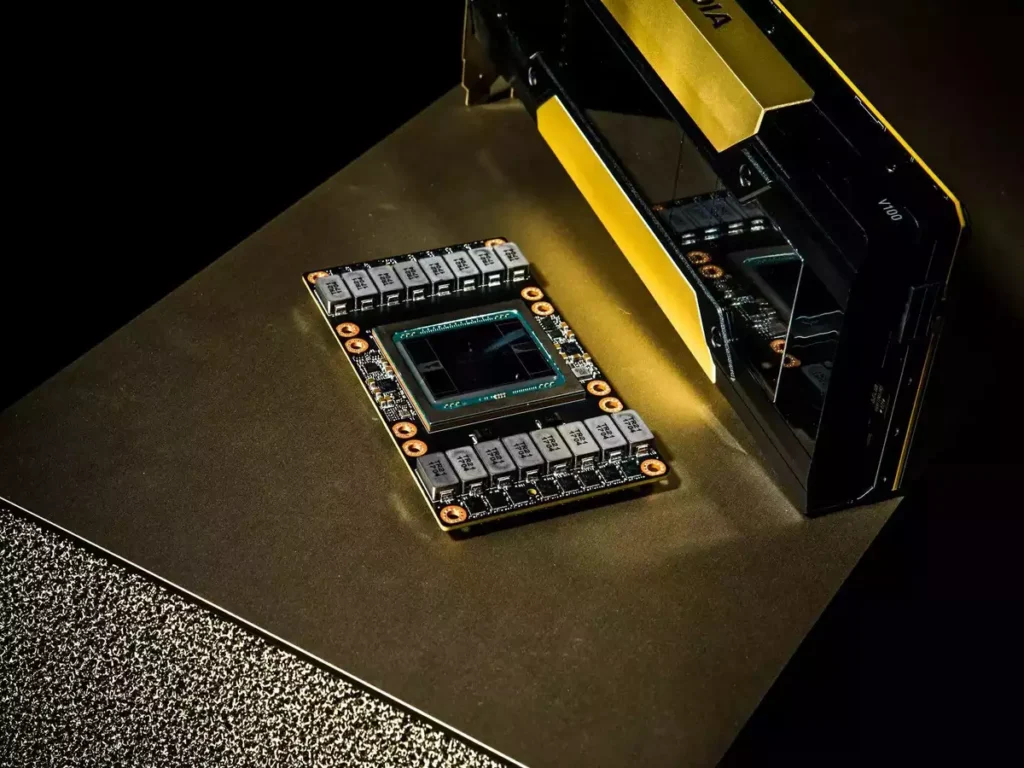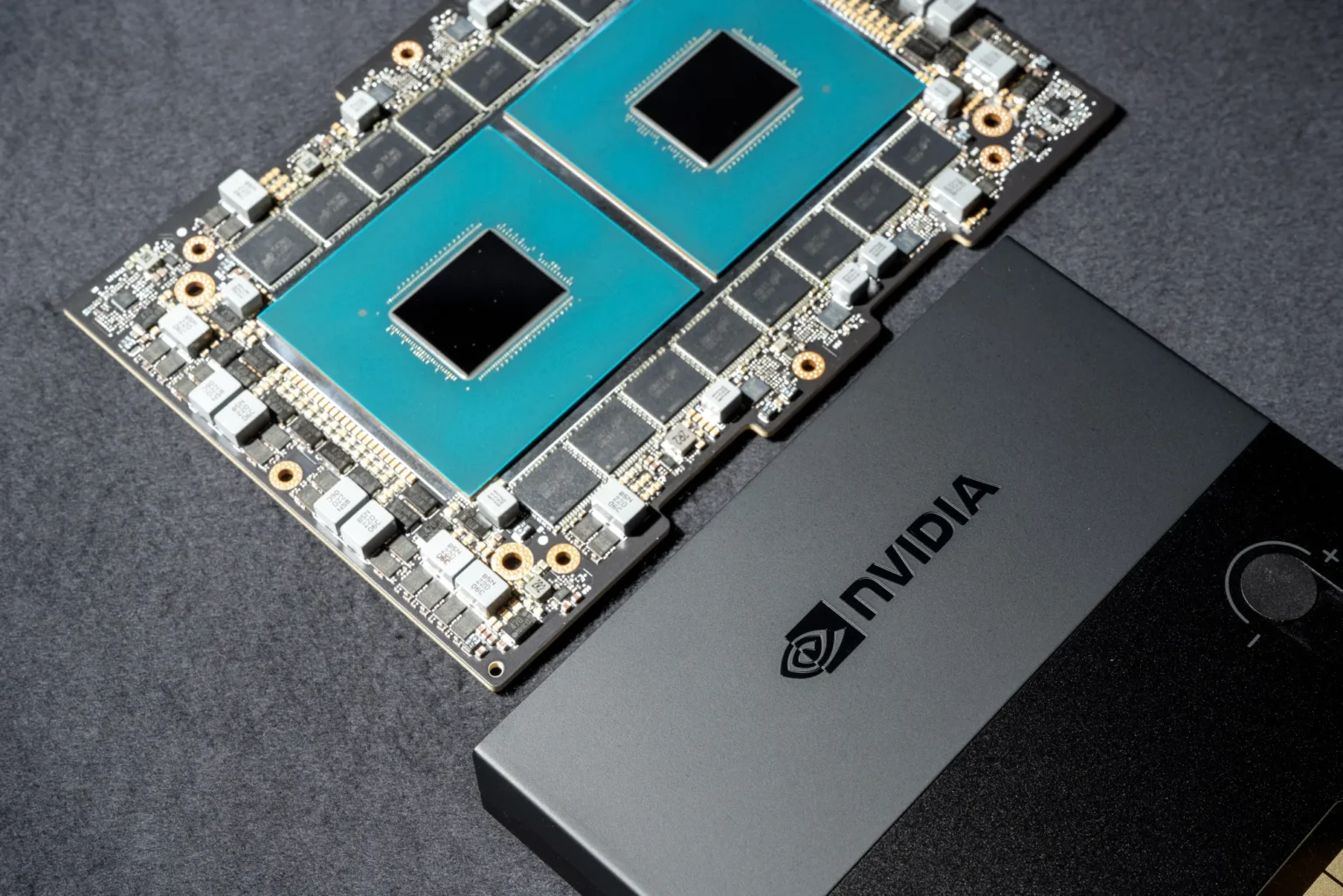In a significant geopolitical development, the United Arab Emirates (UAE) is intensifying efforts to secure access to advanced artificial intelligence (AI) chips from Nvidia, a leading American technology company. This move comes in response to stringent U.S. export controls designed to limit the distribution of high-performance AI technologies to certain nations.
The UAE’s growing ambitions in AI and emerging technologies have made access to cutting-edge computing power a top priority. However, U.S. policies that restrict the export of these chips to certain countries have posed obstacles to the UAE’s technological aspirations. As a result, a high-ranking UAE official is set to visit Washington, D.C., to press the U.S. government for greater access to Nvidia’s AI chips, which are critical to powering advanced machine learning models and AI applications.
Sheikh Tahnoon’s Diplomatic Mission to Washington

Sheikh Tahnoon bin Zayed Al Nahyan, the UAE’s National Security Advisor and brother to the President, is set to lead diplomatic efforts to negotiate exemptions or modifications to U.S. export restrictions. During his visit, Sheikh Tahnoon plans to meet with key members of President Trump’s administration, including Commerce Secretary Howard Lutnick, Treasury Secretary Scott Bessent, and National Security Advisor Mike Waltz.
His primary objective is to advocate for the UAE to be recognized as a trusted partner in AI development. The UAE aims to be categorized as a reliable ally under U.S. trade policies, allowing it to purchase Nvidia’s most advanced AI chips without excessive restrictions. If successful, this would enable the UAE to significantly boost its AI capabilities, solidifying its position as a regional leader in technology and innovation.
Sheikh Tahnoon’s visit comes at a time when nations around the world are competing to develop their own AI ecosystems. The ability to process vast amounts of data using Nvidia’s high-performance chips is essential for training large AI models, advancing automation, and strengthening cybersecurity measures. The UAE sees these technological advancements as crucial to its economic diversification strategy, which aims to reduce reliance on oil revenues by investing in future industries.
Background on U.S. Export Restrictions
The U.S. government introduced tighter restrictions on AI chip exports in January 2025 as part of a broader effort to maintain its global leadership in AI and prevent sensitive technology from falling into the hands of strategic competitors. The restrictions primarily target countries such as China, Russia, Iran, and North Korea, limiting their access to Nvidia’s most powerful chips. Meanwhile, close allies like Japan and the United Kingdom have been granted unrestricted access.
The restrictions classify countries into different tiers based on security and trade considerations. The UAE is seeking to improve its standing within this system, arguing that it should be treated as a reliable partner rather than being subjected to the same restrictions imposed on geopolitical adversaries.
These regulations have had far-reaching implications for global AI development. Many countries that rely on U.S.-made chips for AI research and applications have been forced to explore alternative strategies, such as investing in domestic chip manufacturing or seeking technology partnerships outside the U.S. For the UAE, gaining access to Nvidia’s AI chips is not just about maintaining technological progress—it is also about strengthening its geopolitical ties with the U.S. and securing its place in the future digital economy.
The UAE’s AI Ambitions and Challenges
The UAE has made significant investments in AI, positioning itself as a global leader in the field. The country launched its National AI Strategy 2031 to integrate AI across key sectors, including healthcare, finance, transportation, and security. Additionally, Abu Dhabi has emerged as a major hub for AI development, with state-backed companies investing in research and infrastructure to support AI innovation.
However, U.S. export restrictions have posed challenges to these ambitions. In response, the UAE has explored alternative methods to access high-performance AI computing power. One such initiative involves Core42, a subsidiary of the Mubadala-backed G42 technology firm. Core42 has developed a “regulated technology environment” that enables Nvidia’s H100 Tensor chips to be used within the UAE while adhering to U.S. export compliance rules.
Despite these efforts, direct access to Nvidia’s latest AI chips remains a priority for the UAE. The country’s tech leaders argue that restrictions on AI chips could slow down progress in key sectors, limiting the UAE’s ability to compete in the global AI race. Moreover, concerns about national security and data protection mean that relying on third-party solutions is not an ideal long-term strategy.
Global Implications and Industry Reactions
The UAE’s pursuit of advanced AI technology amid U.S. export controls highlights the complex interplay between national security concerns and global technological competition. Nvidia, whose AI chips are integral to a wide range of industries, has raised concerns about the impact of these restrictions on American companies. The company argues that limiting exports to trusted partners like the UAE could weaken the global competitiveness of U.S. technology firms.
At the same time, there are concerns about how AI chip restrictions are being enforced worldwide. Reports indicate that Chinese firms have been circumventing U.S. export controls by purchasing Nvidia’s latest AI chips through third-party traders in neighboring regions. This underscores the challenges of enforcing such policies while maintaining America’s technological dominance.
From a business perspective, major tech companies are closely watching how U.S. regulations evolve. The AI industry relies on access to advanced computing power, and restrictive trade policies could force international firms to explore alternative supply chains. This dynamic could also encourage other nations to accelerate their domestic semiconductor industries, reducing reliance on U.S. technology in the long run.
Conclusion
Sheikh Tahnoon bin Zayed Al Nahyan’s upcoming visit to Washington represents a critical moment in the UAE’s diplomatic and technological strategy. The outcome of his discussions with U.S. officials could have far-reaching consequences for the UAE’s AI ambitions and its broader role in the global tech landscape.
If the UAE successfully secures exemptions or favorable trade agreements, it could strengthen its position as a leading AI hub in the Middle East. However, if restrictions remain in place, the country may need to accelerate alternative plans to develop domestic AI capabilities or forge new partnerships with other technology providers.
As nations around the world navigate the evolving landscape of AI technology, the balance between national security, economic growth, and global collaboration will continue to shape the future of innovation. The UAE’s push for greater access to Nvidia’s AI chips is just one piece of a much larger puzzle that defines the modern tech race.



